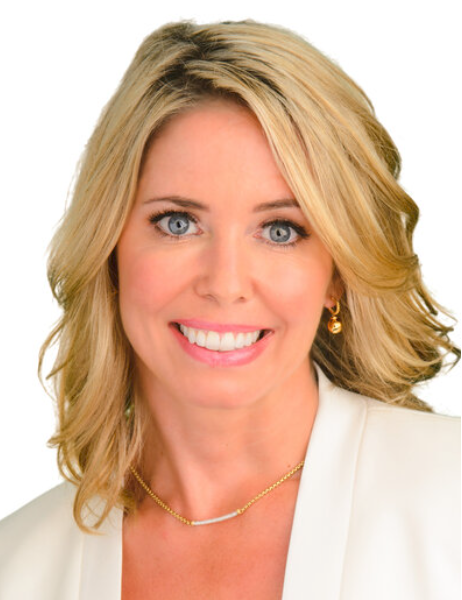
Let’s talk about the basic budget
The baseline budget is a budget strategy that uses the budget of the previous year and performs adjustments for the new year.
With the basic budget, it does not start building a budget of scratch. Instead, the baseline budget assumes that spending will continue at the same level.
Governments mostly use the basic budget, especially in the United States, but some companies and institutions may use a copy of it. Individuals rarely use it, at least not official. However, when Manage your personal budget You can use a copy of the baseline budget. More about that later!
Written by Tiffany Woodfield, Mali Coach, TEP®, CRPC®, CIM®

Here is a simple way to understand:
Imagine you spend $ 5,000 per month on grocery stores, rent and facilities. When making a budget next month, do not start from scratch. You can just take this $ 5,000 and a slightly modified – add $ 200 if the prices rise or get $ 30 if you cancel a service. This is the basic budget mode.
Main points:
Used by: Governments and large organizations to maintain budget are consistent from year to year.
Starting point: Last year budget.
Amendments: Only for expected increases (such as inflation or legally required increases).
✅ The foundation line budget is used by:
- Governments (Like federal, state and local): They depend on it to make the budget on an annual basis more smooth and maintain services that work unless there is a specific reason for change.
- some Large companies or non -profit organizations: They may use the primary line approach to departments with stable and repeated expenses (such as human resources or IT).

🚫 The basic budget is not used before:
- Individual: Most people are either an official budget or use zero or goals.
- Small companiesUsually they do not use the basic budget because they need more flexibility. Revenues and expenses can vary a lot, and many prefer Budget based on zero or Trading expectations That adapts to the current conditions.
- Emerging companiesSimilar to small companies – they often need to justify every dollar you spend, especially when cash is narrow.
Do not use the basic budget officially by individuals, which means that most people do not do so consciously Follow it as a way. but Some individuals use the “basic line” approach in an indiscriminate way They build a budget this month on the spending last month, which only leads to small adjustments.
As an individual you may consider setting the basic budget as “custom-based” or “last month as A-TIMPLATE”-which mimics the principles of the foundation line.
| feature | The baseline budget (for individuals) | Zero -based budget (for individuals) |
|---|---|---|
| Starting point | Last month budget/spending | It starts from zero every month |
| Assume | Most expenses will remain the same | It should be planned for every new dollar |
| How to work | It copies the budget last month and a modification of small changes | You can set every dollar job, from income to savings to spending |
| The time required | Fast – just a review and control | It takes more time – plans for everything from scratch |
| Flexibility | Less flexible if your income or needs changes a lot | Very flexible – great to change income or new goals |
| Good for | Persons with stable income and expenses | People who suffer from changing goals, income, or who want full control |
| example | “Grocery stores were $ 500 last month, let’s do $ 520 this month.” | “I have $ 3000 – 1000 dollars for rent, $ 500 per grocery, and $ 400 to save …” |
| risk | It can lead to “appointment and forgetting” habits and excessive spending | It can be stressful if you are busy or do not like detailed planning |
Quick Video: Budget Basics based on scratch
The zero -based budget can be a smart way to ensure that you provide investment and investment and put money towards a credit card or other debts in addition to enjoying your life!
Common questions about the baseline budget
How can the basic budget help save money?
The basic budget helps you know where your money usually goes.
By discovering the areas that do not change much, you can determine the location of the spending or freezing it, then convert this money into savings without repairing your budget completely.
Why is the basic budget important to manage expenses?
It gives you a stable starting point. Instead of guessing, look at what you actually spend.
This helps you to plan for the future, avoid surprises, and make more intelligent options about what to control, especially if your expenses are mostly fixed from month to month.
Can I use the basic budget for personal finance?
Yes, but it is not common.
Most people do not use it officially, but if you are Building your budget on the spending last month and Disk From there, you are doing it mainly. It works better if your income and expenses are consistent.
What are the steps to create a basic budget?
- Look at the spending last month.
- Mention your regular expenses (rent, grocery, bills).
- Copy these to a new budget.
- Adjust any known changes (such as high rate).
- Add targets such as savings or debt payments on top.
How does the baseline budget differ from other budget methods?
The baseline budget begins with and modified the budget last month.
How can I create a basic budget?
Start writing what I spent last month.
Use this as a starting point. Keep most categories as if you knew something will change. Then set a goal – such as providing or paying debts – and fits this in the plan.
What is the difference between the estimated budget and the basic budget?
It predicts an estimated budget may Spending based on guesses or plans.
A The baseline budget You use what you are In reality He spent in the past as evidence. The estimated budgets are aspiring; The baseline budgets are rooted in the past behavior.
Therefore, should you try to put the basic budget?
If your income and your expenses are somewhat constant, the basic budget may be a simple way to stay on the right track without The invention of the wheel every month. It is not for everyone, but it can work well if you want a low -voltage system that still helps you to discover savings and stay in control.
Get the free guide and audio meditation to show your dreams
Broadcast
You will also get e -mail messages or two per month with the latest blog posts about abundance, building wealth, showing and creating a satisfactory life.
Read more:
💎 Budget 101: How to create and follow a simple budget
💎 How to achieve your money budget successfully
💎 How to adhere to a budget (even if you are new in the budget)
About the author

Tiffany Woodfield He is a financial coach, an expert across the border and co -founder of Swan Wealth, based in Kelowna, BC. As director of TEP and wallet manager, Tiffany has extensive work experience with successful professionals who want to leave a legacy and enjoy an adventure lifestyle and work manufacturing. Tiffany combined the wide knowledge of its background as a financial professional with training and her passion for personal development to help its customers create a unique road that allows them to live in their maximum capabilities. Tiffany was a regular contributor to Bloomberg TV and was interviewed with national and international publications, including Globe and Mail and Barron.





